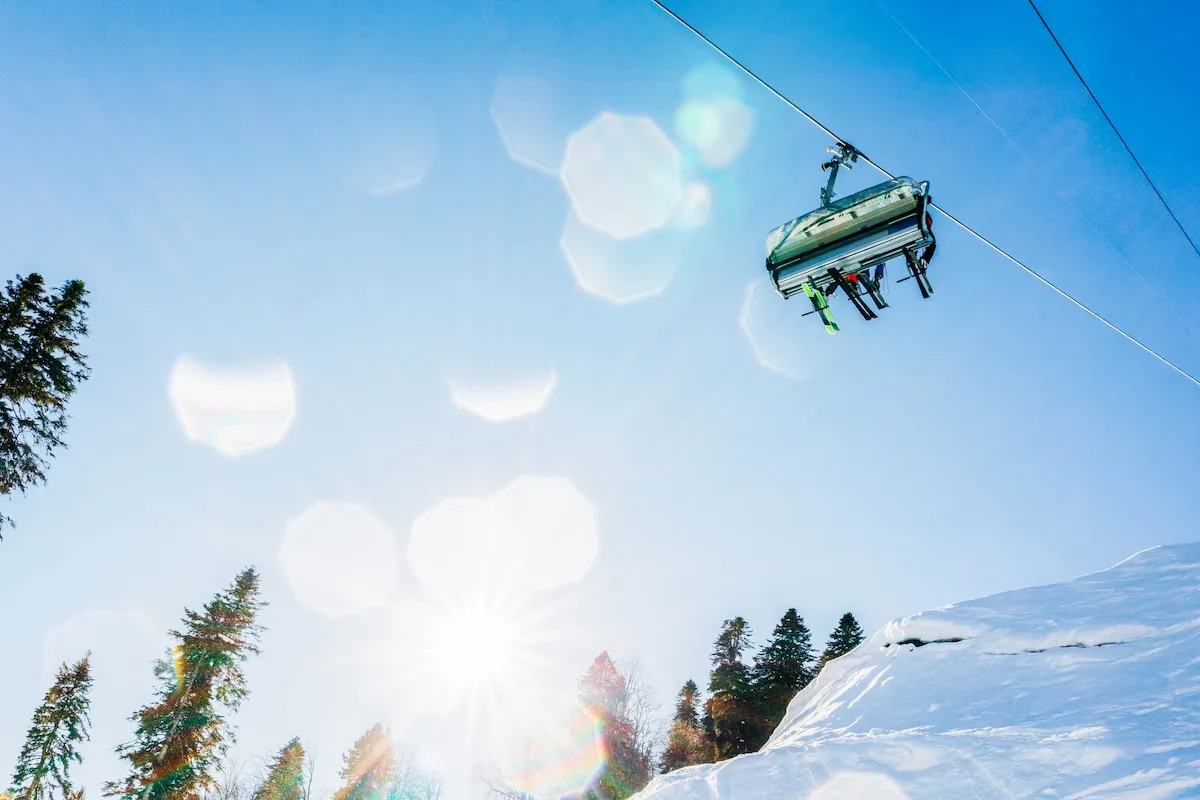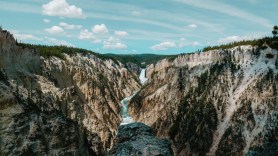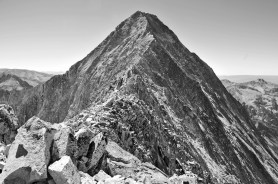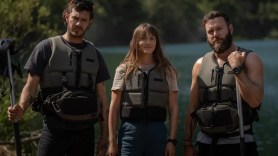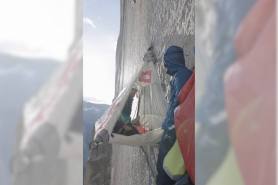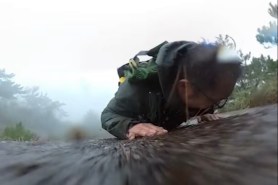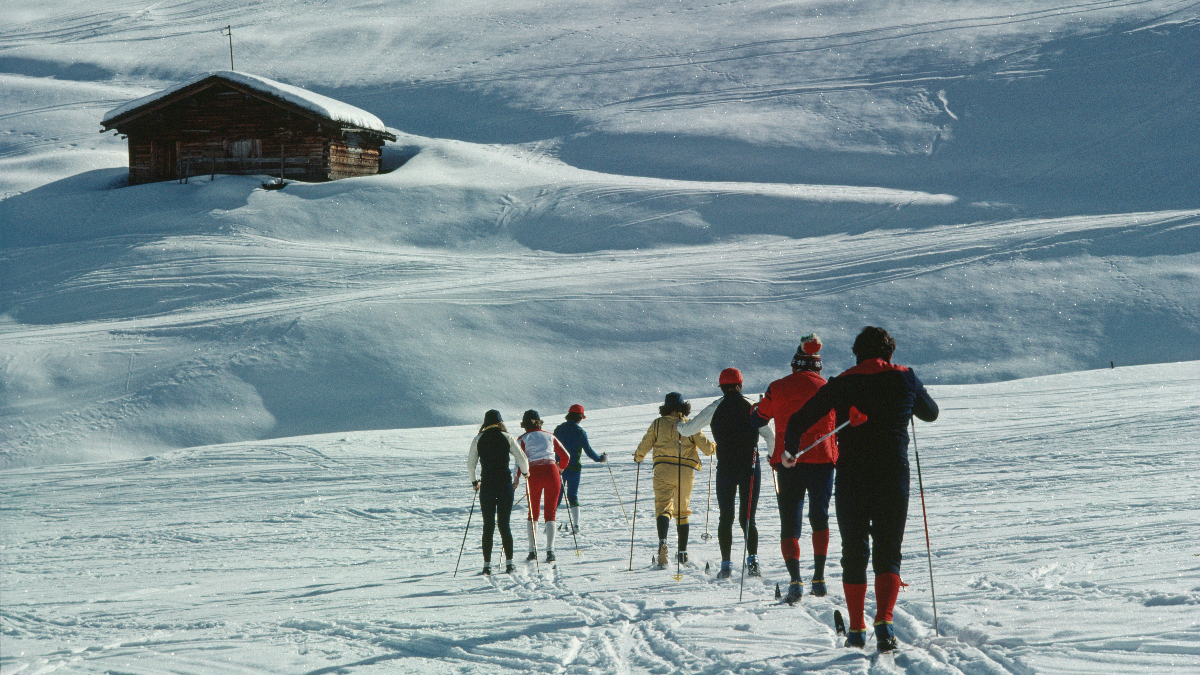

It might be shocking for us younger generations to hear, but we didn’t invent the outdoors. We weren’t the first to climb, to hike, or to ski. While we have our own culture around these activities, and we’re innovating in our own ways, we’re standing on the shoulders of giants.
Videos by Outdoors
It’s worth noting, too, that we won’t necessarily be able to ever top some of these moments in time. The 1970s rock climbing culture in Yosemite? That culture will never return in the exact same way again. That’s for better and for worse, right?
Change comes eventually, and maybe those outdoorsy folks back then had more style, but there’s been some pretty necessary social movements in the meantime, too. With all that in mind, let’s take a walk down memory lane. As we approach the new year, here’s a dose of outdoor nostalgia for you.
All Our Outdoor Nostalgia Started Here
The conceit for this article, at least, came from this post off the Appalachian Trail Conservancy’s Instagram:
The packs have gotten smaller and the shorts have gotten longer. (Although, perhaps the shorts haven’t changed that much.) A few different folks in the comments seem to recall one specific 1999 hiker pictured here. He goes by the name of Wyoming Skateboarder, and he apparently hiked with a canoe paddle as a walking stick, carried a massive tarp, and kept his food in a 5-pound bucket. Some of his Appalachian Trail (AT) journals are available here, detailing his hike that year, in which he tied another hiker for the longest AT thru-hike.
Old-School Climbing Always Brings Outdoor Nostalgia
If you’ve got your finger on the pulse of outdoors nostalgia, you’re probably already following @old_school_climbing on Instagram. They’re always sharing pictures from that golden era.
Scott Cosgrove, pictured above climbing The Gift in Red Rocks, was a climbing legend. He had a long and storied career with many first ascents, making history several times.
Films about climbing these days are huge, blockbuster productions. Free Solo was not only an incredible feat by Alex Honnold but also an incredible film. Just watching it makes your palms sweat. The more squeamish among us may not even be able to watch.
The same might be said for The Alpinist, a film following Marc-André Leclerc and his incredible exploits. Flashback to 1967, and we can see a predecessor of these films. Sentinel: The West Face is an incredible record of two climbers, Yvon Chouinard and Royal Robbins, scaling Yosemite’s Sentinel Rock. It’s not a long film, and it’s well worth a watch:
Ski Fashion Should Never Have Changed
The vibes that these stars, (including Princess Diana) brought to the slopes will perhaps never be topped:
That said, perhaps some lesser-known fashion icons come close:
The 1980s was a bit of a boom decade for skiing. The hair was bigger, the colors were brighter, the chair lifts were slower, and the helmets were nonexistent. Lift tickets were cheaper, the ski industry wasn’t yet completely dominated by a few companies with monopolies on nearly every slope, and snowboarders weren’t yet much of a thing. If you could go back to this era, would you?
Hiking Has Always Just Been Walking
Much like skiing culture and fashion, hiking has changed a lot since the 1980s. Before the advent of ultralight gear, before people started switching over to trail runners, there were packs with metal frames, about as tall as preteen children. Maybe this places the short shorts of contemporary thru-hikers in context, as something historical that has always belonged to hiking culture.
Hiking history goes back as far as human history. Maybe you’ve heard that humans have the most efficient stride in the animal kingdom, so covering long distances on foot has always been a part of who we are. There’s more outdoor nostalgia in hiking culture than we could ever cover.
Here’s one example, a great photo of Bud Ross. He was a co-founder of Outward Bound in the 1960s, having been a member of the Sierra Club through the late ‘50s.
For one more iconic historical moment on the Appalachian Trail, we can pop back over to the 1990s. Actually, the year 1990 specifically. That was the year Bill Irwin, completely blind, finished the AT. Along with his guide dog, Orient, he covered those 2,000+ miles on foot. The journey came after his recovery from alcoholism, having stopped smoking five packs a day. The moment he collapses to his knees is palpable.
What era and which outdoor specialty spark the most nostalgia for you?
CHECK OUT THESE OTHER YEAR-END STORIES FROM OUTDOORS.COM:
- The Year in Outdoors: A Look Back at 2023
- The Year in Outdoors: People of the Year 2023
- The Year in Outdoors: 2023 Saw Some Great New Gear—Here Are a Few Favorites
- The Year in Outdoors: Our Top 10 Stories in 2023 (Plus 10 You May Have Missed)
- The Year in Outdoors: New Mosses, Mushrooms, and Other Forest Things Discovered in 2023
- The Year in Outdoors: New Animal Species Discovered in 2023
- The Year in Outdoors: Our Favorite Creators, YouTubers, and Podcasters of 2023
- The Year in Outdoors: These Were Some of the Most Heartwarming, Epic, and Outrageous Outdoor Videos of 2023

